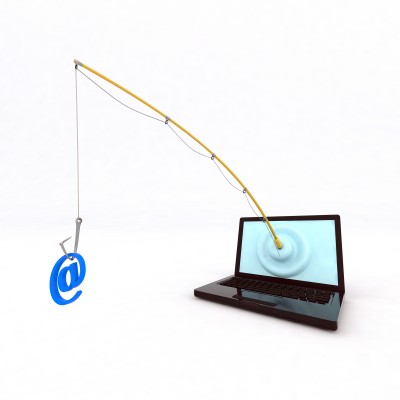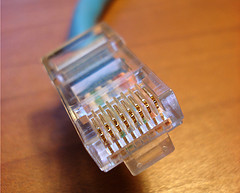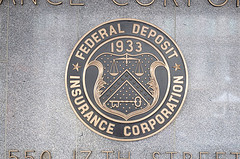
Your personal information is important to you. Or is it? It should be and you should want to protect it. But what exactly should you want to protect and what are you protecting it from? And how do you protect it? Do you really need to worry about it? And if so, can’t you just pay a service to do it for you?
Lots of questions and even more answers. Like noses, everybody’s got an answer…or at least an opinion…and, yes, they all smell! But some smell better than others. Get a whiff of these tips…
Your personally identifiable information (PII) can include many things, such as bank account numbers, passwords, credit card numbers, security codes, driver’s license or state-issued ID numbers, date of birth (DOB), addresses, phone numbers, Social Security numbers, and more. When someone gets their hands on one or more pieces of your PII, it can potentially be used in many ways; most of them are not good. Cyber criminals can use your information to make purchases on your credit/debit card and withdrawal or transfer funds from your bank account without your knowledge or permission. They can also assume your identity for the purpose of opening new accounts, obtaining credit or services, or applying for loans – all under your good name!
Many services are available to monitor your information and accounts. But these services typically alert you after the suspicious activity has occurred on one or more of your accounts. That could be a day late and a dollar short. (Maybe several dollars!) Think of it this way…would you rather prevent the leak in your roof from occurring in the first place, thus, saving you the headache of cleaning up the mess at all? Or, would you rather wait until the leak happens, making a mess and causing water damage, before you take action? Waiting too long means a lot more damage and work for you because then you not only have to fix the leaky roof anyway but you have to clean up the mess, too! It’s the same idea with the maintenance and protection of your valuable information. An ounce of prevention could save you a lot of headaches down the road.
Try following these guidelines:
- Do not carry your Social Security card with you and do not give out your Social Security number. Legitimate businesses and vendors recognize the vulnerability created for customers when they are asked to provide their SSN. Consequently, most don’t ask for it. And even if they ask, it doesn’t mean you’re obligated to provide it.
- Do not carry your PIN or passwords in your wallet and choose a PIN number that’s not obvious like consecutive numbers or your birthday.
- Regularly review your bank statements, credit card invoices, and bills every month.
- Monitor your credit reports at least once per year. You’re entitled to a free copy of your credit report once every twelve months from each of the three credit reporting bureaus (Equifax / Experian / TransUnion). By requesting your report from one of the bureaus every four months, you can obtain three separate reports over the course of a year.
- Shred your documents before you throw them in the trash or recycle bin. Bills, bank statements, credit card statements, cash machine receipts, medical benefits statements, credit card and loan offers, and old credit cards can provide someone digging through your trash with a wealth of information. Don’t give them that chance.
- Don’t leave credit, debit, ATM card, or gas station receipts behind at terminals or machines. Shred them like other personal documents.
- If you’re not making your bill payments electronically or online, mail them at the post office or use a blue USPS mailbox. Don’t put your paid bills in your mailbox for pickup. Identity thieves make a living stealing mail with all that sensitive data. The amount of damage an ID thief can do with just a signed personal check is limitless.
- Be suspicious and a little bit paranoid. Always question when someone asks you for any piece of personal information. Give out your information sparingly. Provide as little information as necessary and be very hesitant to give any information to someone who contacts you (vs. someone you have contacted for a specific purpose). Never give any information to someone calling you on the phone, even if the caller says it will be used to claim a prize or award.
- Don’t respond to phishing scams, which are fake emails and web sites that appear to be from authentic businesses. These fakes are trying to get you to provide personal account numbers, logins, and/or passwords. Legitimate businesses don’t ask you to update your personal information through an email.
- Don’t click on, open, or download files received in emails or instant messages from anyone, unless you were expecting it and have verified that the file, picture, attachment or website is valid and safe. Even if the message appears to be from friends, family members, or others with whom you are familiar, be sure to verify with the sender that they really did send it to you and that they are familiar with its contents. A picture, attachment, or website may contain malicious content.
- Ignore and delete emails that ask you to forward something on to your friends or contacts and don’t provide any personal information in response to chain emails.
- Take care not to install programs unwittingly. Often, software that is free to download online may actually be malware or an infection. Also, beware of other programs that are bundled with the software you’re intending to download. Read all user agreements and pay attention to boxes that are checked by default to install an unwanted program.
- Create and use secure passwords for all accounts online. Even though it may seem like a hassle, sophisticated software now makes it extremely easy and quick for cyber criminals to crack your passwords if they are less than twelve characters long. Be creative and make up your own words and use special characters, if allowed.
- Make sure you know the correct website address you wish to visit and verify it is legitimate before providing any personal information. Be diligent about ensuring that you are really visiting the website you think you’re visiting, even if it’s one you think you frequent often. Fake websites are remarkably good at imitating the look and feel of the real thing.
- Be careful of any advertisements you may click on when visiting a website or that are contained within an email message you’ve received. They, too, may contain viruses or malware.
- Always use a firewall on your PC or laptop. A firewall provides a security barrier between the Internet and your computer, monitoring your connection for suspicious activity and blocking hackers from accessing your machine.
- Make sure your wireless network (Wi-Fi) is secure. Lock down your home’s wireless network by using the security features of your wireless router. If you use a Wi-Fi connection away from home, be sure it is secure, or at the very least, avoid sending or receiving personal information over a public connection.
- Install and always use security software (firewall, antivirus, anti-spyware software) and keep it up-to-date as a safety measure against online intrusions.
- Always use security software and make sure it includes antivirus, anti- malware, a firewall, an email spam filter, a popup blocker, and protection against identity theft. Keep the software up-to-date to stay safe and secure against online intrusions.
- Use an updated Web browser to make sure you’re taking advantage of its current safety features.
- Don’t share too much personal information online through social networking sites. Remember, it’s the Internet and once it’s out there, it’s out there to stay.
- Be sure to destroy all of the digital data on your hard drive when you sell, trade or get rid of an old computer. The same goes for other storage media like thumb drives, DVD’s, CD’s, etc. Make sure the data is completely erased and destroyed. Besides deleting the data and reformatting the hard drive, use a product like Microsoft-backed SDelete to ensure all data is completely wiped beyond recovery from the hard drive. Completely destroy DVD’s or CD’s by shredding them or cutting them up with scissors.
- Be aware of the latest scams and use caution to combat fraud. Share what you learn with your friends and family.
Following these simple preventative measures can save you big headaches down the line. It could be worth a pound of cure!
If you're looking for great anti-virus software that won't break the bank, try StopSign. You don't pay extra for tech support for difficult malware, and our web protection software just works. Download & install StopSign to find out why our members choose us over the other options.








Recent Blog Comments